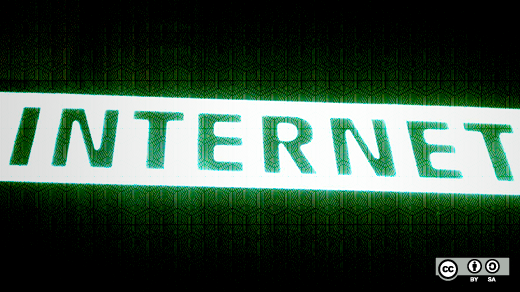Daniel Alvarez—Legal Advisor for Wireline, Public Safety, and Homeland Security at the FCC (Federal Communications Commission)—spoke at a forum last week with the North Carolina Technology Association about the FCC’s deliberations on a framework to "protect and promote Internet openness."
Alvarez provided some insight into the public comment process regarding the FCC's draft Open Internet Order, his surprise at the partisan reactions to the term "net neutrality," and the struggles of the FCC to come up with regulations that will be both reasonable and legally enforceable.
Background (briefly)
The FCC regulates communications by radio, television, wire, satellite, and cable, as provided in the Communications Act of 1934 (as amended by the Telecommunications Act of 1996). Title I of the Act covers information services, which includes services that utilize or make available content via telecommunications. Title II covers telecommunications services—essentially, the management or provision of the telecommunication system itself. Under the Act, Title II telecommunications service providers are subject to "common carrier" regulations, which among other things prohibits unreasonable discrimination in charges for telephone or cable service. Title I information services, which currently includes broadband Internet services, have historically not been very heavily regulated, and are not subject to the obligations of common carriers.
Over the past decade, the FCC has made a few attempts to provide guidelines or regulations that would prevent Internet Service Providers (ISPs) from blocking or discriminating against certain online services, especially from competitors. In January 2014, the DC Circuit court held that while the FCC generally has authority to regulate broadband pursuant to Section 706 of the Telecommunications Act, the anti-blocking and anti-discrimination provisions of its Open Internet Order were Title II regulations that could not be applied to Title I services.
In response to the court’s decision, the FCC released their proposal for a revised Order in May and requested public comments through September. To date, the FCC has received about 3.9 million comments. One of the most popular proposals among consumers (but not, of course, among ISPs) is the notion of reclassifying ISPs as Title II "common carrier" services.
According to Alvarez, the FCC Chairman "wants to move this as soon as possible," although he acknowledges that no date has been set. Speculation has been that the FCC could release a new Order by the end of the year.
So what now?
Alvarez, and the FCC, are clear on the goals of a net neutrality policy. He described the "virtuous cycle" of innovation spurred by the Internet, saying: "How do we keep that going, and protect that and promote that?" Through an open Internet policy, the FCC hopes to protect both consumers and new entrants into the broadband or content delivery services markets.
Doing that, however, is not without controversy. "Net neutrality has become a partisan idea," he said. "When the proposal first came out, [some] people thought it was a corporate takeover of the Internet. Other people thought it was a government takeover of the Internet. It can’t be both. And actually, it wasn’t either."
The FCC is confident that it has the authority to reclassify ISPs as Title II common carriers if required. However, reclassification isn’t a given. "What we want the rules to do will determine whether or not we reclassify or what authority we rely on," said Alvarez. He's currently having two or three meetings a week with various stakeholders to evaluate the legal enforceability of various options. According to a recent New York Times article, the FCC is considering four different proposals, including a hybrid approach for wholesale as opposed to retail services. The FCC’s priority is implementing a framework that, unlike its last two attempts, will hold up in court. Doing so is a challenge, but Alvarez was adamant that the FCC's goals of protecting consumers and spurring innovation make it worth the effort.
"We’re trying to drive competition and innovation," Alvarez said. Historically, "when there is competition, the consumer benefits through lower prices and better services." When asked what that meant in terms of the burden imposed on ISPs, he replied, "There will be a burden on providers. The question is, 'Is that burden justified?' And I think our answer is 'Yes.'"







1 Comment